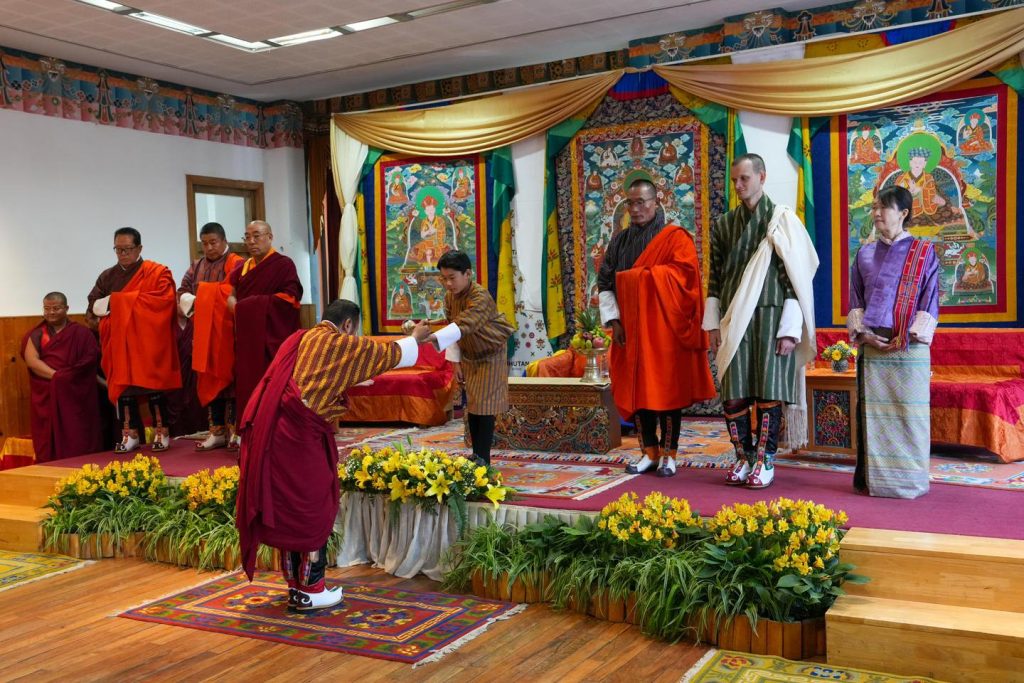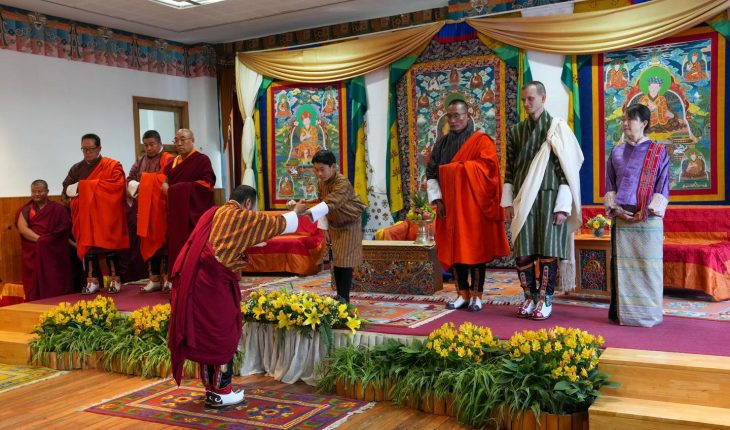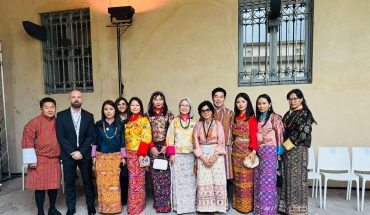
Bhutan leads in digital sovereignty with Ethereum-based national identity
TIL BDR GHALLEY | Thimphu
Bhutan has become the world’s first nation to migrate its National Digital Identity (NDI) platform to the Ethereum blockchain, marking a historic milestone in its pursuit of digital sovereignty and technological self-reliance.
The official announcement was made in Thimphu at an event graced by His Royal Highness Gyalsey Jigme Namgyel Wangchuck, who in 2023 became the nation’s first digital citizen.
The integration of the Bhutan NDI with Ethereum — one of the world’s most decentralized blockchain networks — signifies a new era of secure, transparent, and citizen-centric governance.
PM Tshering Tobgay described the move as “not merely a technological achievement but a historic moment in Bhutan’s journey toward a secure, values-driven digital future.”
“Integrating the Bhutan NDI Platform with the Ethereum blockchain is the bridge between our timeless values and a decentralized digital future.
“By interoperating the NDI platform with Ethereum, we are weaving a fabric of trust that is open, verifiable, and interoperable—yet guided by our own moral compass,” he said.
He added, “Our vision of Gross National Happiness has always guided us to seek not only what is new but what is right. We do not adopt technology for novelty but for purpose—to strengthen trust, preserve dignity, and empower our future.”
The Bhutan National Digital Identity system enables citizens to control their own data through verifiable credentials, eliminating reliance on centralized databases that can pose risks of failure or misuse.
More than 80 percent of Bhutan’s adult population has already been onboarded into the NDI ecosystem, marking significant progress since its launch in 2023.
Jigme Tenzing, Secretary of the GovTech Agency, said the migration enhances the resilience and transparency of Bhutan’s digital infrastructure.
“Bhutan’s digital identity system empowers individuals to control their own information, eliminating the need for a central authority to manage or verify it.
“So far, we have been using a blockchain provided by Polygon. By moving to Ethereum, we are further strengthening the security of our digital identity. Ethereum is one of the most decentralized blockchains in the world, making it virtually impervious to disruption,” he added.
The integration aligns with Ethereum’s 10th anniversary and the second anniversary of Bhutan’s NDI platform. Officials said this timing underscores a shared commitment between Bhutan and the Ethereum community to open-source, interoperable systems that serve the public good.
Ethereum co-founder Vitalik Buterin commended Bhutan’s initiative, calling it a model for how blockchain can serve national interests.
“Decentralized digital identity empowers people by giving them more secure control over their data and their online lives,” Vitalik Buterin said. “Bhutan’s embrace of an open architecture on Ethereum reflects why we build this platform—to drive meaningful, positive change through open-source technology.”
Aya Miyaguchi, President of the Ethereum Foundation, also welcomed the development, noting that Bhutan’s decision embodies the founding principles of Ethereum.
“Bhutan’s transition is an expression of what Ethereum was always envisioned for—empowering individuals through self-sovereignty over their own data, establishing trust without single points of failure, and enabling inclusive digital systems,” she said.
Aya Miyaguchi added that the Ethereum Foundation will continue to support Bhutanese developers through mentorship and training.
“We have identified talented local developers, and from here, it’s up to them,” she said.
Ujjwal Deep Dahal, CEO of Druk Holding and Investments (DHI), said the integration of NDI with Ethereum lays the foundation for Bhutan’s digital economy.
“NDI is the foundational layer of the digital economy, and on this layer, we can build numerous applications,” he stated.
He added the other important aspect is bringing the Ethereum community to Bhutan. “We hope that these applications will be developed through collaboration between the Ethereum Foundation and local developers.”
He noted that the technology could directly support projects like the Gelephu Mindfulness City — Bhutan’s flagship development initiative — envisioned as a model for a trust-based economy.
“The NDI technology, combined with the future of Ethereum, offers an incredible opportunity to implement a trust-based economy in Gelephu and across Bhutan,” Ujjwal Deep Dahal said.
Officials said the Ethereum-based identity system opens the door for Bhutan to explore advanced applications such as digital document signing, blockchain-based voting, and tokenization of natural assets like land and forests.
“If there is another pandemic, essential services like public procurement, financial assistance, and social welfare can be delivered with accuracy, trust, and transparency,” Ujjwal Deep Dahal explained.
He said that digital identity will eventually extend to “providing identity for tokens representing physical assets.”
Since its inception, the NDI platform has been issuing verifiable credentials across education, finance, and health sectors, enabling citizens and enterprises to access digital services securely.
Bhutan is now the first sovereign nation to deploy a national digital identity system on a public blockchain and scale it nationwide, backed by legislation recognising it as an official self-sovereign identity.
His Royal Highness The Gyalsey inaugurated the NDI, symbolizing Bhutan’s emergence as a pioneer in digital governance based on decentralized technology.
PM Tshering Tobgay reaffirmed that Bhutan’s approach to digital transformation remains rooted in independence and inclusivity. “Bhutan’s pursuit of digital sovereignty is not about isolation, but about independence and integration,” he said.
“This is how open infrastructure can enable trusted public systems—Bhutan is showing the world what’s possible.” said Aya Miyaguchi.





